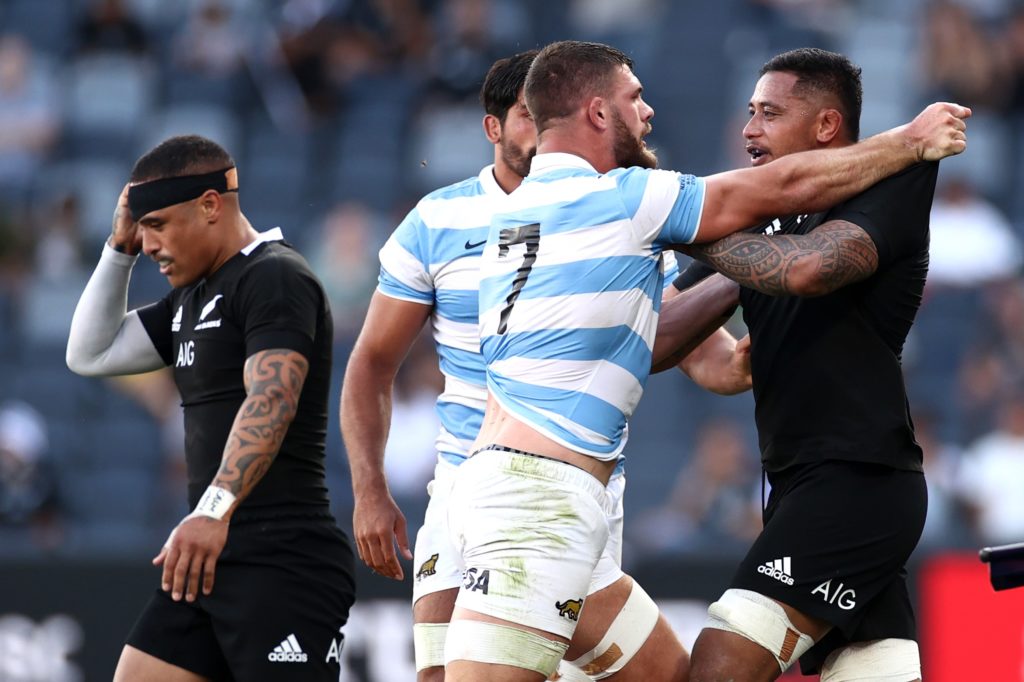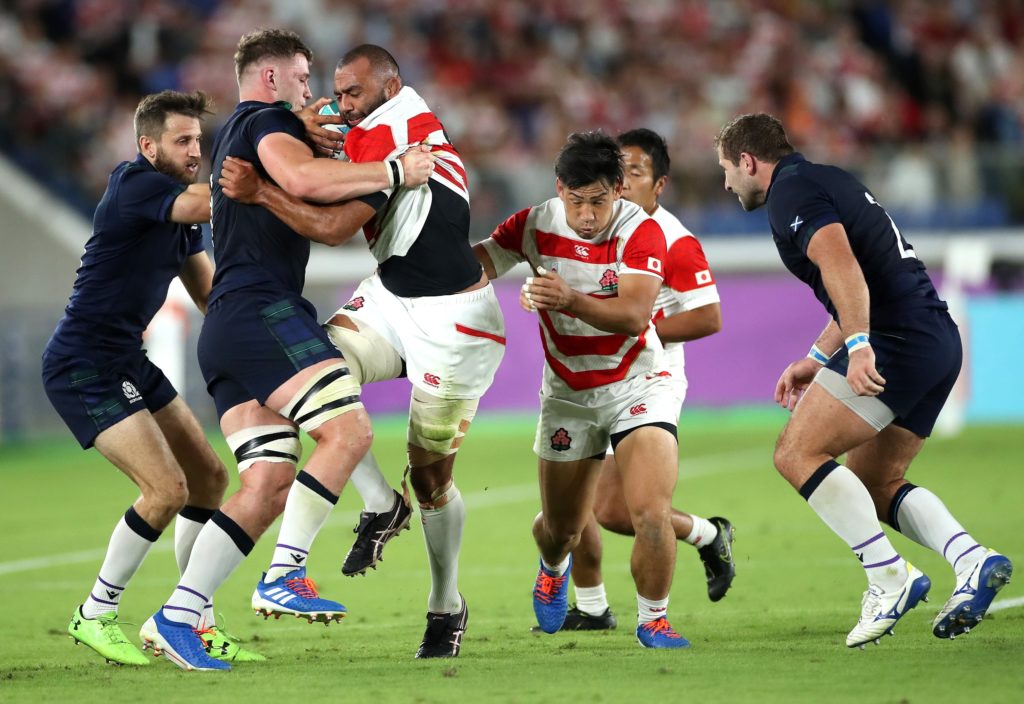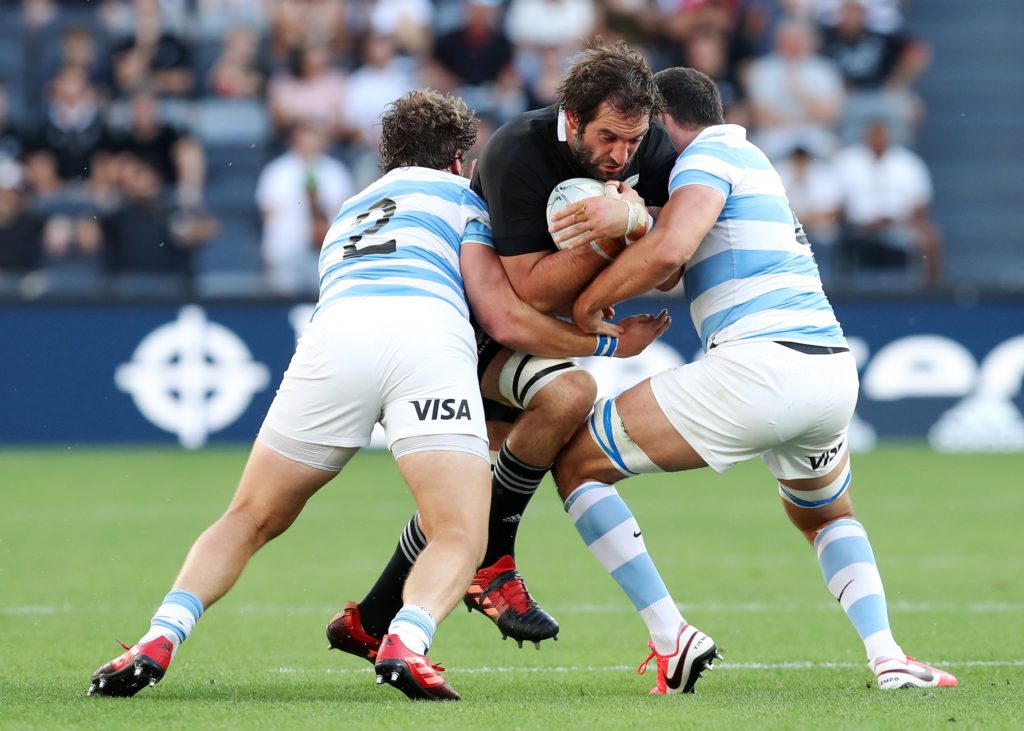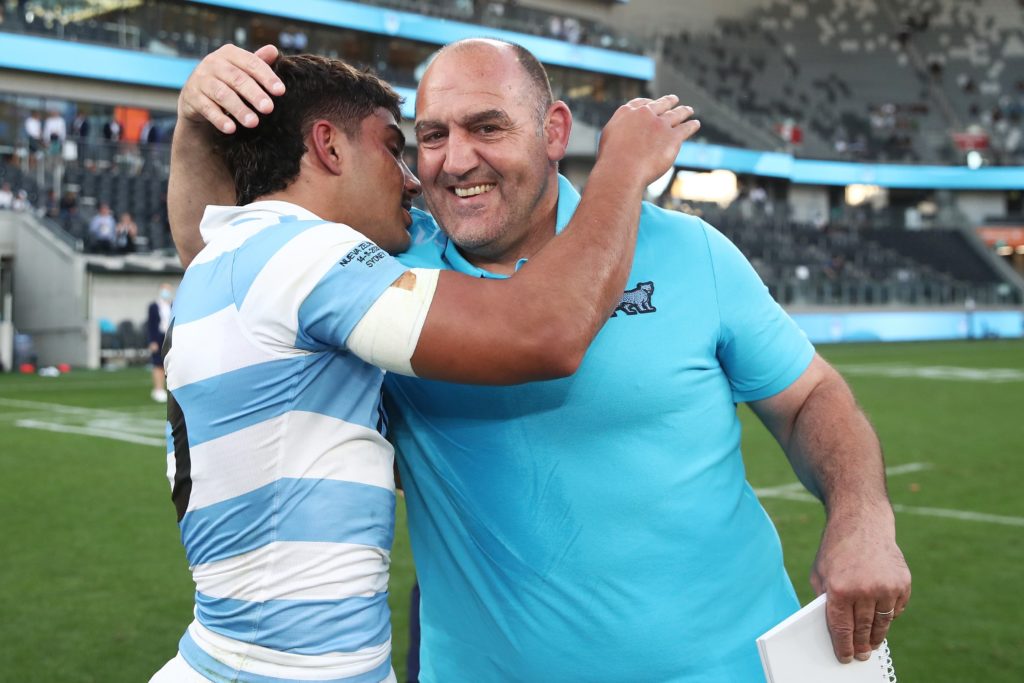It’s been more than 400 days since Argentina were vanquished from the Rugby World Cup, barely firing a shot against pool mates England and France.
Los Pumas were blitzed 39-10 by the English while Les Bleus raced out to a 20-3 lead at halftime before the score was narrowed to a two-point margin at the final whistle.
The eventual third-place finish in Pool C marked Argentina’s worst World Cup campaign since 2003 and when the world was turned on its head this year due to the COVID-19 pandemic, things were expected to go from bad to worse.
Los Pumas’ Argentina-based players who had been representing the Jaguares in Super Rugby last played a competitive match in mid-March. The likes of Nicolas Sanchez and Juan Imhoff, who are based in France, also had big breaks in play this season.
The South Americans were expected to be well undercooked when they faced off with the All Blacks on Saturday night.
Adding to their woes, players and coaches alike were struck down by coronavirus, putting the team’s spot in the Tri-Nations in jeopardy.
Still, Argentina managed to pull through and unlike the Springboks, committed to taking part in a competition that few gave them any hopes of even mustering a win in.
Following their touchdown in Australia, Los Pumas twice dealt to an Australia XV – racking up a hefty 57-24 win in the second match – in preparation for their opening match of the Tri-Nations. Still, the South Americans were expected to be well undercooked when they faced off with the All Blacks on Saturday night.
All signs pointed to a thumping – but the signs were wrong.

Instead, Argentina entered the match with more desire, greater purpose, and better commitment than their opposition, and history was made.
Los Pumas’ 25-15 victory was their first-ever win over the All Blacks. It took 29 attempts over 35 years, but finally Argentina had broken their duck against the men in black – despite all indications that another hefty win was on the cards for New Zealand.
It was a victory that defied all the odds. How could a team that’s not played any meaningful fixtures in more than six months, not played a test match in more than a year, even come close to competing with a team that’s been put through its paces regularly, comprised of players with extensive minutes under their belts?
Following the events of last year’s World Cup, perhaps everyone was too quick to write off Argentina. After all, they’re not the first undercooked team to take on favoured opposition and emerge victorious.
In the build-up to Japan 2019, the hosts took an unusual approach to preparing for the competition. Instead of loading up the Sunwolves with international stars, head coach Jamie Joseph kept Japan’s top players on ice.
While the Sunwolves were off touring Australasia and playing against the likes of the Blues and the Waratahs, the Brave Blossoms stars were instead hitting tackle bags and occasionally taking on Super Rugby development sides.
Joseph had evidently decided that the best preparation for the challenges of the World Cup wasn’t actually playing rugby – at least not against the types of players that Japan would face in the latter half of the year.
In the build-up to Japan 2019, the hosts took an unusual approach to preparing for the competition. Instead of loading up the Sunwolves with international stars, head coach Jamie Joseph kept Japan’s top players on ice.
When September finally arrived, Japan were the surprise packages, making the quarter-finals for the first time in their history and recording their first-ever wins over Scotland and Ireland.
That’s despite the fact that men such as Michael Leitch, Yu Tamura and Kazuki Himeno had played just a handful of matches during the year, and that Japan had lined up for just 13 test matches against tier-one teams since the previous World Cup when they famously defeated the Springboks.
When the Brave Blossoms tipped up Ireland in Shizuoka, then Scotland in Yokohama, Joseph proved that despite all the assumptions, a team doesn’t need to be regularly playing top-flight rugby in order to improve.
In fact, what Joseph showed is that quality time in camp together is just as beneficial as actually playing rugby.

When quizzed on why certain players were held back from the Sunwolves, Joseph suggested that the timing of Super Rugby relative to the World Cup was a major factor.
“We have to ensure [the national players] can play at the right time of the year,” he told Kyodo News – implying that perhaps his charges might peak too early if they were unleashed on Super Rugby sides in early February.
Flash forward to the present, and Argentina are now possibly unintentionally benefitting from their exceptional drought of matches.
Just because they’ve not been squaring off against international opposition, however, it doesn’t mean the side haven’t been training hard and preparing for the Tri-Nations.
New Zealand’s Super Rugby Aotearoa season drew to a close in mid-August, with the All Blacks coming together for the first time in 2020 a few weeks later.
Argentina, meanwhile, first assembled around the time of the Aotearoa competition’s conclusion but had been training individually in preparation for the test season from May. They didn’t have to focus on what their Super Rugby team needed – they simply did what was best for their national side, and it showed on Saturday.
It’s been eight years since Los Pumas joined the Rugby Championship back in 2012, and their inclusion alongside the All Blacks, Wallabies and Springboks was long overdue. After all, Argentina had finished third at the 2007 World Cup and were beaten quarter-finalists in 2011.
Just because Argentina had not been squaring off against international opposition, it didn’t mean they hadn’t been training hard and preparing for the Tri-Nations.
Those impressive results were achieved despite the fact that the national team had considerably fewer opportunities to regularly test themselves against fellow tier-one teams in the build-up to both competitions.
In the six years either side of Argentina’s bronze medal finish in 2007, Los Pumas played just 35 matches against tier-one opposition. Fourteen of those matches came against Italy and Scotland. In contrast, Argentina played South Africa three times, New Zealand twice and never clashed with Australia.
Compare that with the All Blacks, who played tier-one opposition 79 times over the same time period. Just six of those matches were against strugglers Italy and Scotland.

In the six years either side of 2015, Argentina’s tier-one test match count jumped to 78. Naturally, all and sundry expected Los Pumas to transform from a sometimes-giant-killer to a regular contender on the world stage. Instead, we’ve actually seen the opposite.
Naturally, Argentina have suffered considerable losses against their fellow SANZAAR nations, given their increased play. That’s to have been expected. More concerningly, their results against the Six Nations sides have plummeted.
From 2004 to 2011, Argentina scored at least two victories against each of the Northern Hemisphere’s tier-one sides. Their overall record against those same sides sat at 23 wins from 41 matches.
All and sundry expected Los Pumas to transform from a sometimes-giant-killer to a regular contender on the world stage. Instead, we’ve actually seen the opposite.
In the last eight years, however, only France and Italy have fallen victim to Argentina on more than one occasion. Los Pumas’ record against the Six Nations side over that period is just 10 wins from 37 attempts.
Despite Argentina’s increase in regular top-tier competition as well as their introduction to Super Rugby, we’ve see a marked drop in the national side’s performance – against all predictions. That’s not to say that Argentina’s addition to SANZAAR was a bad idea, just that at the highest level of the game, perhaps we’ve all been wrong about what factors lead to great results.
It’s a similar story for Italy, who’ve seen no significant improvements in national performance in the 20 years since they first joined the Six Nations.
Perhaps it would be a similar story for Japan.

At the end of the day, there’s good reason to believe that Argentina’s historic win against New Zealand wasn’t as big an upset as many have made it out to be, and perhaps we were all too quick to write Los Pumas off before Saturday’s match.
Argentina were well rested, they’d spent plenty of time together as a team and, in all likelihood, their coaching team led by Mario Ledesma have spent the past two months analysing the All Blacks from every possible angle.
That’s not to say that Los Pumas should have been installed as favourites for the match, but maybe we need to start re-thinking the costs and benefits of more regular play.


Comments
Join free and tell us what you really think!
Sign up for free